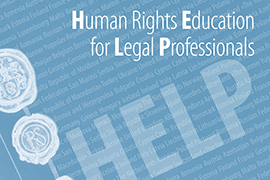Comitetul Consultativ HELP
Atribuţii
Comitetul Consultativ HELP este un organism desemnat de Rețeaua HELP pentru acordarea de asistență consultativă Secretariatului HELP în afara reuniunilor Rețelei HELP și, în acest sens, are următoarele atribuţii:
- evaluează programele standard și materialele de formare elaborate de Programul HELP;
- propune Rețelei HELP temele prioritare pentru activitățile de formare viitoare;
- identifică strategia generală de coordonare a formării în domeniul drepturilor omului în rândul actorilor internaționali și naționali relevanți, inclusiv privind dezvoltarea inițiativelor regionale;
- acordă asistenţă cu privire la metodologiile de formare pentru profesioniștii din domeniul juridic;
- cooperează cu personalul editorial HELP (personalul editorial HELP este alcătuit din experți în jurisprudența CtEDO şi în formarea în domeniul CEDO, experți în tehnologia informației și comunicațiilor;
- estenumit de Secretariatul HELP și este responsabil de planificarea și implementarea unei strategii de comunicare pentru Programul HELP și pentru publicarea și revizuirea știrilor și materialelor de formare pe site-urile HELP);
- oferă consultanță cu privire la alte probleme specifice identificate de Rețeaua HELP și de Secretariat;
- elaborează un raport anual pentru Rețeaua HELP.
Metode de lucru:
Comitetul Consultativ HELP își coordonează activitățile cu Secretariatul Programului HELP.
Reuniunile sunt convocate la sediul Consiliului Europei la Strasbourg și sunt organizate după cum urmează: 7 membri, 2 întâlniri de o zi pe an.
Mandat
Comitetul Consultativ HELP este un organism desemnat de Rețeaua HELP pentru furnizarea de asistență consultativă periodică Secretariatului HELP.
În mod normal, este compus din șase membri numiți dintre reprezentanții Rețelei HELP. This mandate has 7 members since two members received the exact same number of votes.
Cel puțin un reprezentant al institutelor de formare din fiecare categorie de profesioniști din domeniul juridic (judecători, procurori, avocați) care participă la Programul HELP este parte a Comitetului Consultativ.
Componența Comitetului Consultativ este decisă în cadrul Conferinței anuale a Rețelei HELP, prin vot secret. În cazul în care au loc alegeri, primii șase candidați care au adunat majoritatea voturilor sunt aleși.
Regulamentul a fost actualizat în 2016, astfel încât mandatul membrilor Comitetului să fie de doi ani. Cu excepția perioadei de tranziție, niciun reprezentant nu trebuie să servească mai mult de două termene consecutive în Comitetul Consultativ. Perioada de tranziție a Comitetului se va încheia la sfârșitul Conferinței anuale a Rețelei HELP din 2018. La alegerile din 2018, cei mai vechi trei membri ai Comitetului se vor retrage și nu vor fi eligibili pentru realegerea în 2018.
Membrii Comitetului Consultativ pot numi printre aceștia Raportori pentru anumite teme. Comitetul Consultativ raportează cu privire la activitățile sale în cadrul Conferinței anuale a Rețelei HELP.
Noul consiliu consultativ a fost ales în cadrul Conferinței Anuale a Rețelei HELP din 2016. Candidații aleşi în componenţa Comitetului Consultativ nou format sunt enumerați mai jos.
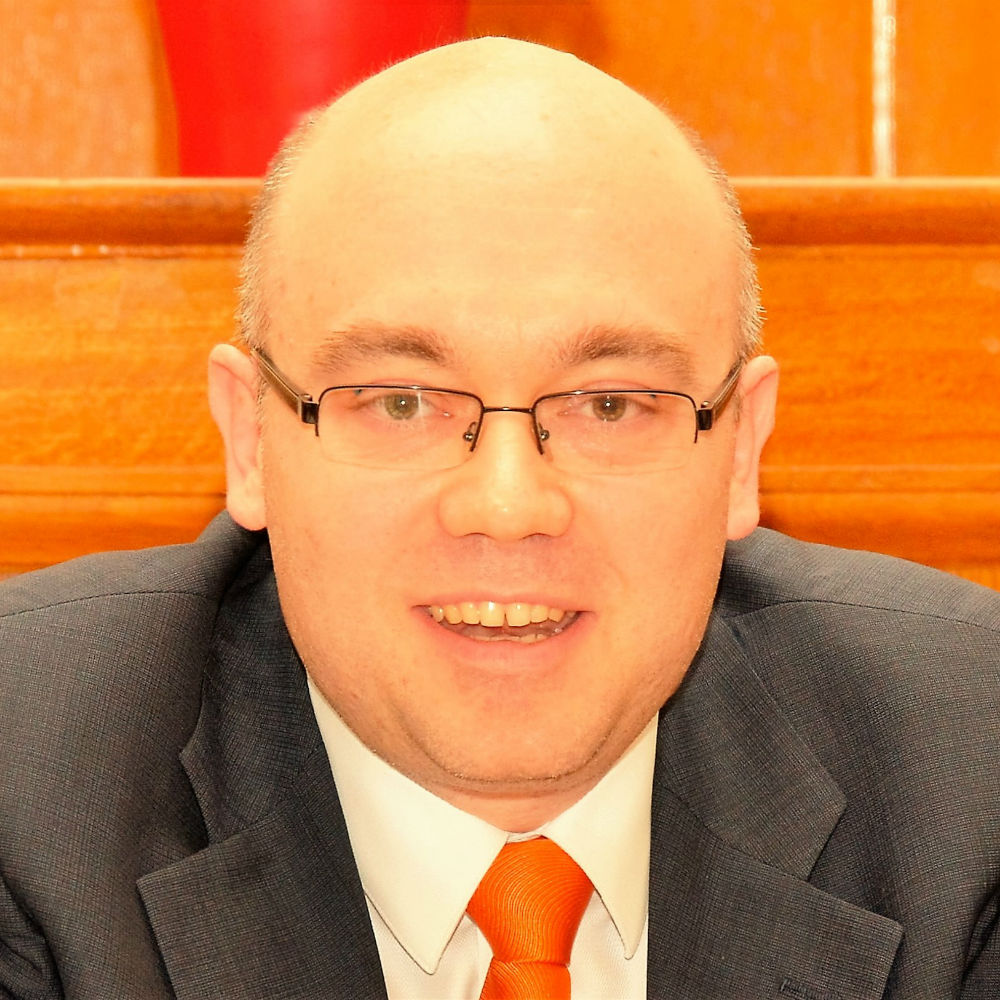
Petros Alikakos
GREECE, Judge at the Court of First Instance of Thessaloniki with jurisdiction in civil
Working experience:
2004 – up to now: Judge at the Court of First Instance of Thessaloniki with jurisdiction in civil cases concerning the Greek state and the legal entities of public law and all types of criminal cases (except from minor offences)
1995 -2003: Assistant of the Dpt of Civil, Civil procedure and labor law of the Law School of Aristoteleion Panepistimion of Thessaloniki
1997-2003: Lawyer of the Thessaloniki Bar Association
Education:
1995: graduation from the Law School of Aristoteleion University of Thessaloniki
1997: Master’s Degree from the above School
2003: PhD degree of the Faculty of Law of Aristoteleion University of Thessaloniki, as scholar of the “Institution of State Scholarships” (I.K.Y.)
2003-2005: Post – doctoral research as scholar of the above Institution
1995, 1997: Scholarship of the German Academic Exchange Service (D.A.A.D.)
2014: University of Geneva’s 8 weeks online course under the topic “Introduction aux droits de l’ homme” (in French).
Languages:
English (excellent), French (very well), German (very well) and Greek (native)
Skills:
2013-2014: National tutor of the first e-learning course for Greek judges and prosecutors. The course had the topic “community sanctions and alternative measures as an answer to prison overcrowding” in the frame of the HELP program and in cooperation with the Greek School of Judges
2015: Certification as CEPEJ expert
2015: Certification as HELP trainer
International seminars – international visits:
2011: Participation in the seminar of the Academy of European Law (ERA) about “European Union Law on equality between women and men in praxis”
2013: Invitation by the U.S. Department of State to participate in the 3-weeks International Visitors Leadership Program under the title “U.S. Judicial System”
Publications:
- Joint initial and continuous training for judges and lawyers in the framework of the Council of Europe and according to the Greek legal order, International Organisation for Judicial Training Journal, Issue 4, 2015, p. 115-121.
- Just satisfaction for exceeding the reasonable time of the hearings – a new remedy in the domestic (Greek) law (administrative, civil and criminal trial), Elliniki dikaiosini, 2015, p. 1-8.
- Contribution in the efficiency of Justice, Collective work, (The chapter of “Selection of Judges and Judicial Training", p. 153-171), 2015
- Organisation and efficiency of Justice. The European experience, Collective work, (Guidelines of CEPEJ regarding the Judicial maps, Guidelines of CEPEJ regarding Judicial time management-SATURN guidelines, p. 37-91), 2015
- Abuse of real rights (Post-doctoral research), 2007
- Alternative Dispute Resolution in e-commerce, Armenopoulos, 2005, p. 1681-1687.
- The deliberation on the legal entities of private law (Dissertation), 2004
- Confiscation in the hands of an EU organ as a third party, Elliniki Dikaiosini, 1997, p. 1506-151.
Memberships:
Member of the Legal Professional's Society of Northern Greece (Εταιρία Νομικών Βορείου Ελλάδος).
Founding member of the Center of Cadastral Studies (Kέντρο Κτηματολογικών Μελετών), http://kekthme.web.auth.gr/
Participation in collective bodies:
2010 – 2012: Election as a member in the three – member committee of the Greek Association of Judges and Prosecutors for the district of Thessaloniki’s Court of Appeals.
2012 – up to now: Appointment as HELP’ s focal point of the Greek School of Judges.
2014 – 2015: Participation in the committee of the Society of Judicial Studies (Εταιρία Δικαστικών Μελετών) about the reformation of the Greek judicial system, having the responsibility for the section of the selection of judges and the judicial training.
2014 - up to now: Election as a member of the Consultative Board of the HELP program of the Council of Europe for a two year mandate.
2014 – up to now: Election as an associate member in the Steering Committee of the Court of First Instance of Thessaloniki for a two year mandate.
2015 – up to now: Member of the National Implementation Working Group regarding training programs of the National School of Judicial Officers of Greece in collaboration with the OSCE Office for Democratic Institutions and Human Rights (ODIHR).
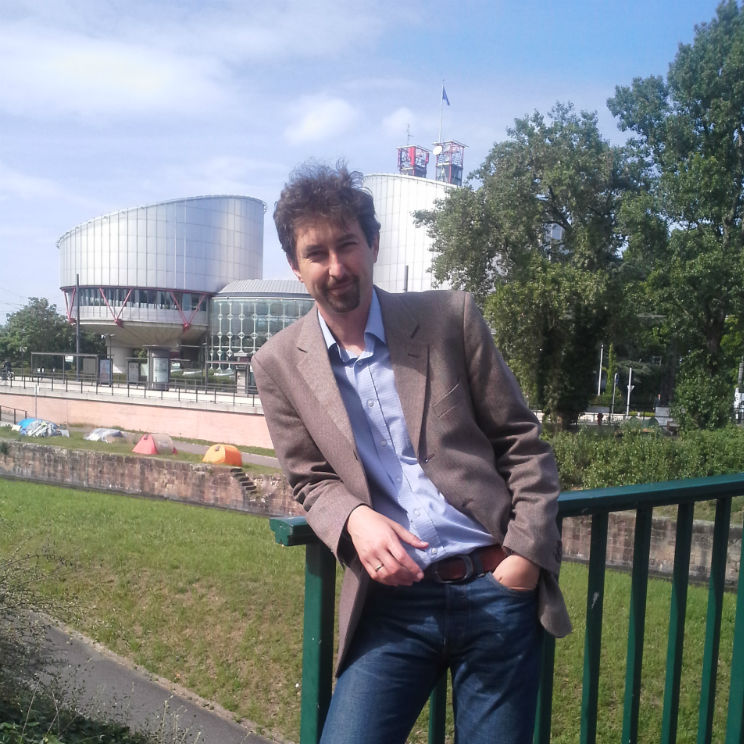
Grzegorz Borkowski
POLAND, Head of Office of the National Council of Judiciary
Doctor of law (specialization- civil procedure), publishing in Polish, English and Russian on procedural issues, human and fundamental rights and organization of justice; editor of books on ethics of legal professions and co-author of a popular students’ book on organization of justice (5th edition in 2016). Since 2000 has lectured at universities on civil procedure, human rights protection and organization of justice. Attended numerous judicial training events in Eastern and Western Europe, as well as Texas, USA also as a lecturer (e.g. in Kiev, The Hague, Strasbourg, Lviv) and a chairman of seminars on human rights-related issues (Rome, Cracow, Barcelona). From 2013 to 2014 has been on a long-term judicial training programme in ECHR in Strasbourg. Since 2011 has been an active member of EJTN’s (Euroepan Judical Training Network) Administrative Sub-working Group responsible for coordinating training events on human rights— related issues, acting as both an expert and a chairman.
Having experience as both judge and university teacher, combines theory and practice in his everyday work.

Sandra Budimir
CROATIA, Lawyer and Member of the Croatian Bar Association
Sandra Budimir is a HELP Focal Point for Croatia and the national tutor of HELP distance-learning courses.
She is a practicing lawyer with her own Law Office in Zagreb and member of the Croatian Bar Association since 2006. She has previously worked in national and international law offices (DLA Piper Weiss –Tesbach) and at the European Court of Human Rights as Croatian processing lawyer and member of the Case-Law Information and Publications Division. Her main fields of expertise include protection of human rights on national level and before the ECtHR with focus on civil rights issues related to Article 6 and 8 of the Convention and Article 1 of Protocol 1 to the Convention, and corporate, civil, property, competition and EU law issues. Sandra holds a law degree from the Law Faculty of the University of Zagreb and LL.M. in the European Law and European Integrations from the University of Dresden (scholarship of the IRZ-Stiftung).

Simon O'Toole
UNITED KINGDOM, Barrister and Vice-Chairman of the Training for the Bar Committee
Simon is a member of the Bar Council of England and Wales and is currently Vice-Chairman of the Training for the Bar Committee. He is an accredited advocacy trainer and frequently participates in compulsory training courses for barristers. Simon is regularly invited to European conferences and seminars organized by universities, bar associations or the Council of Europe as a trainer or an expert in professional legal training.
Simon’s voluntary work for the independent legal profession has been recognized by being nominated for national pro-bono awards. He is a Master of the Bench of The Honourable Society of the Inner Temple.
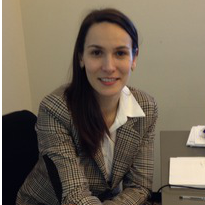
Beatrice Ramascanu
ROMANIA, Civil Judge
Beatrice Ramascanu has been sitting as a civil judge since 2003. For several years, she worked in the team of the Romanian Agent of the Government before European Court of Human Rights.
Her expertise in the field of the European system of human rights protection was also availed in her activity as a trainer of the National Institute of Magistracy on ECHR’s case-law. In 2011, she earned a PHD degree at Bucharest University – Faculty of Law with the thesis Member States’ Positive Obligations for Civil Rights under European Convention Human Rights. Private and Family Life and the Protection of Property.
Beatrice Ramascanu has a consistent activity as a European training expert for European Judicial Training Network or Council of Europe, conducting many international trainings in the field of human rights and European civil cooperation. She published scholar articles and currently she develops online learning modules for the National Institute for Magistracy.
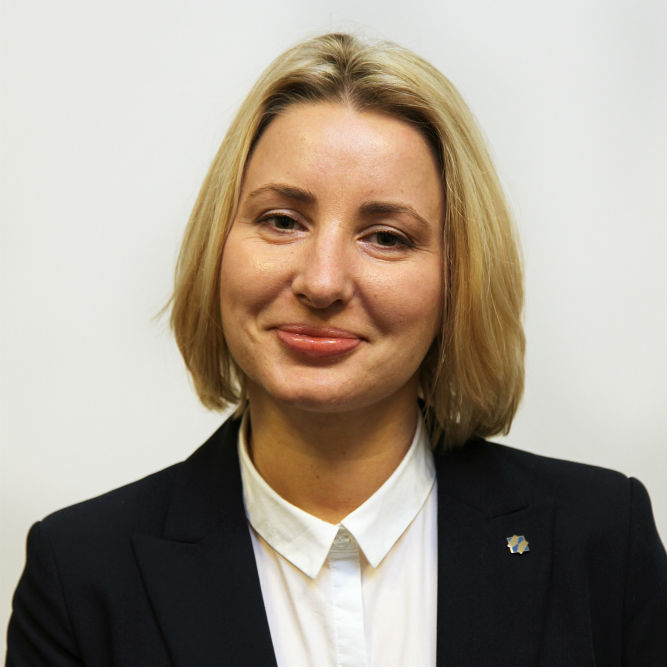
Jolanta Samuolyte
LITHUANIA, Lawyer and Project Manager at the Lithuanian Bar Association
Jolanta Samuolyte is the HELP Info Point as well as the national tutor of Admissibility and Anti-discrimination distance learning courses. She works as a lawyer and project manager at the Lithuanian Bar Association and lecturer at Mykolas Romeris University, International and EU Law Faculty. Jolanta has previously worked as a lawyer in a number of NGOs including the Human Rights Monitoring Institute and Civil Defence Fund in Vilnius and INTERIGHTS in London. Her main areas of interest include development of pro bono practice and strategic litigation in areas of discrimination of vulnerable groups, freedom of expression, and access to justice before the national and European Court of Human Rights. She is alumni 2010-2011 of USA Hubert H. Humphrey fellowship and 2002-2003Open Society Foundations Justice Initiative (former OSI COLPI) fellow. Jolanta holds L.L.M. from Central European University. She is a member for Lithuania of the European Commission for Sexual Orientation Law.
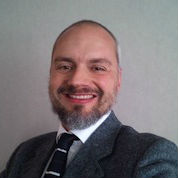
Pier Giovanni Traversa
ITALY, Attorney at Law and Member of the Bar of Bari
Pier Giovanni Traversa is attorney at law, member of the Bar of Bari, Italy, since 1999.
Since 2006 LLM in European Private Law at University La Sapienza (Rome - Italy).
Since 2013 chairman of the Training Committee at the C.C.B.E. (Council of Bars and Law Societies of Europe).
Info-point for Italy in the HELP in the 28 programme.
The Consultative Board who served as members between June 2014 and June 2016 were:
- Petros Alikakos, NTI, Greece
- Grzegorz Borkowski, NTI, Poland
- Sandra Budimir, BA, Croatia
- Simon O'Toole, BA, UK
- Beatrice Ramascanu, NTI, Romania
- Jolanta Samuolyte, BA, Lithuania
- Pier Giovanni Traversa, BA, Italy
The activities of the Board can be seen in the Reports published below. The HELP Secretariat extend their thanks to the previous Board members for all their hard work and for their invaluable contribution to HELP's success during their mandate.
You will find here the activity reports of the HELP Consultative Board published in:
- June 2014



